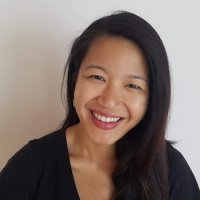
“After my book was accepted for publication, I wanted to start a new project immediately. Over the past couple of years, I came up with several project ideas and tried to write poems that worked toward a theme or subject. I thought this would be the way to avoid the ‘first book slump.’ I realize now, after spending months doing this and not feeling very good about my new poems, that this big picture process was not helping me. I was trying to exert too much control over my writing which resulted in me feeling creatively blocked. I described it to my friends as feeling like an actor unable to cry onstage. I realize that a sense of play must come first, and then, after I have a group of poems, I can begin strategizing about where a potential project could go, what subjects I’d like to focus on, what themes I should continue to explore.
This realization has made me an even bigger proponent of constraint-based writing as a way of getting unstuck. As a younger writer, I found forms and constraints to be generative and often the catalyst for new choices and personal discovery. I still turn to sonnets, lipograms, abecedarians, and other forms or limitations when I begin writing a poem. Focusing on the materiality of language helps distract the part of me that wants to control everything.”
—Marianne Chan, author of All Heathens (Sarabande Books, 2020)
Photo credit: Clancy McGilligan






